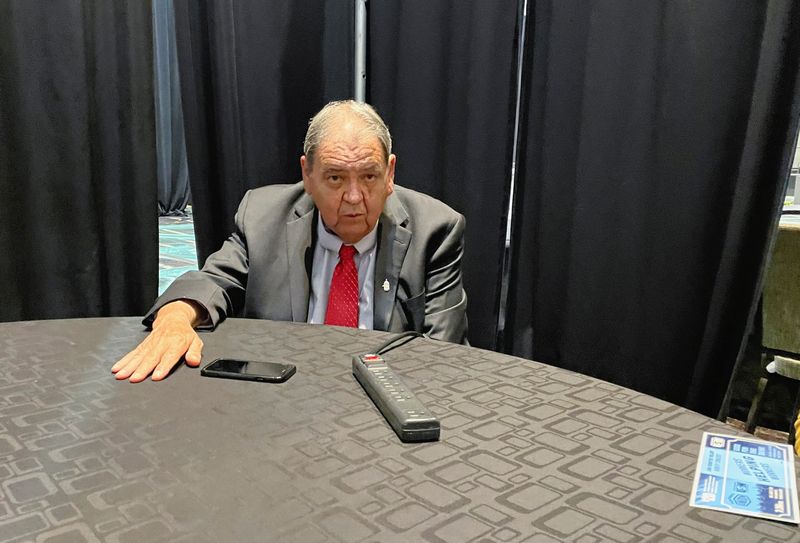USW president lauds bill’s focus on building North American production
2022.08.09 04:06

Thomas Conway, United Steelworkers International president, gears up to organize workers in new industries, including electric cars, offshore wind power construction and lithium mining, in Las Vegas, Nevada, U.S., August 8, 2022. REUTERS/Erwin Seba
By Erwin Seba
LAS VEGAS (Reuters) – United Steelworkers union (USW) International President Thomas Conway said on Monday the U.S. climate, tax and health bill will create new opportunities for U.S. companies and union members.
The U.S. Senate approved the Biden administration’s $430 billion bill on Sunday and it will go to a Democratic Party-controlled House of Representatives where it is expected to pass.
Conway told Reuters in an interview the USW plans to add 30 new organizers to increase the union’s presence in old-line steel, oil and other industries and to expand into industries the bill is designed to encourage such as electric cars, wind-power, solar and biofuels.
The Inflation Reduction Act, as the bill is called, will offer opportunities for union workers, Conway said, and provide businesses a long-term horizon to invest in new technologies.
Conway spoke to Reuters on the sidelines of the Steelworkers’ constitutional convention in Las Vegas, which runs through Thursday. The USW will add new organizers to develop recruiting campaigns in existing and new industries, he said.
“I’m going to let the work decide the size of it, as opportunities present themselves. We’re going to look at regions, we’re going to look at industries,” he said declining to break out the split between the old and new.
The bill includes incentives for companies that include union workers, but the overwhelming focus is on boosting U.S. production and employment, he said.
“There is a focus on buy American, buy North American” products, Conway said. “If they write buy American legislation in there, a requirement like that, the opportunity for some of this stuff will naturally fall to unionized shops, particularly in the mining sectors.”
The USW represents 850,000 workers in metals, mining, pulp and paper, chemicals, energy producing, health care, education and other service industries.
“We need copper, we need nickel. We’re going to need lithium and cobalt. Whatever we can discover here, I think you’ll find that employs union miners,” he said.








